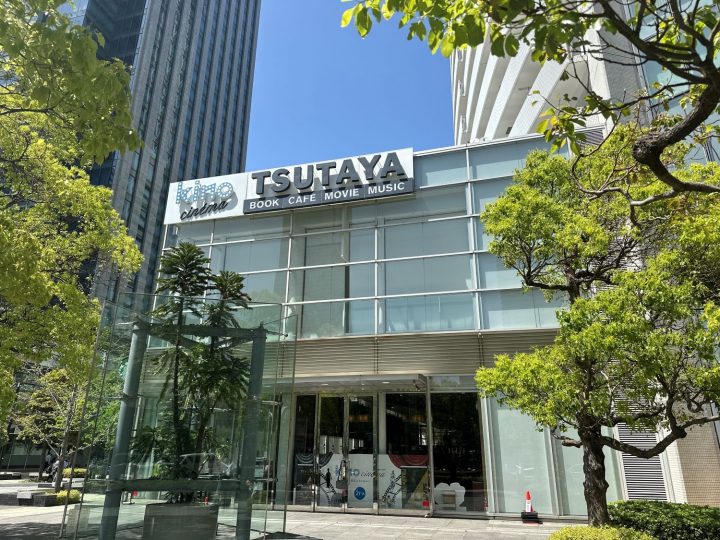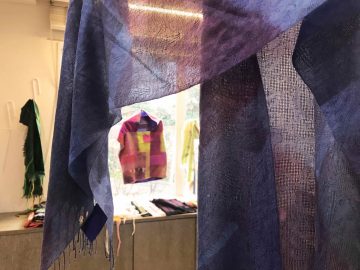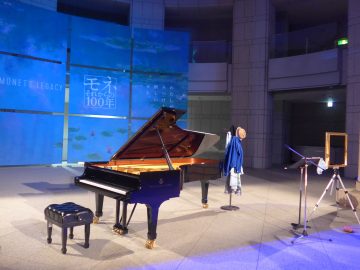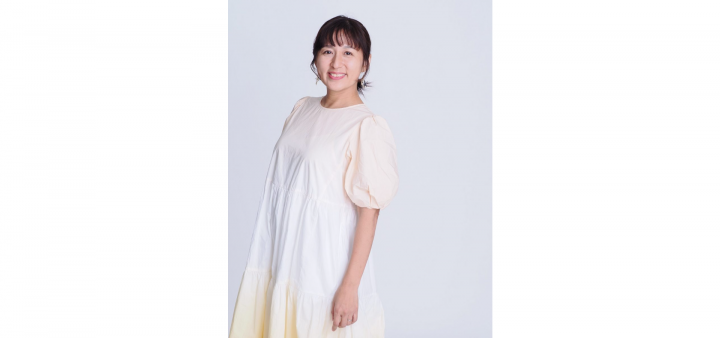Cinema Walk 3rd Yokohama Cinemarine, Isezakicho, Yokohama
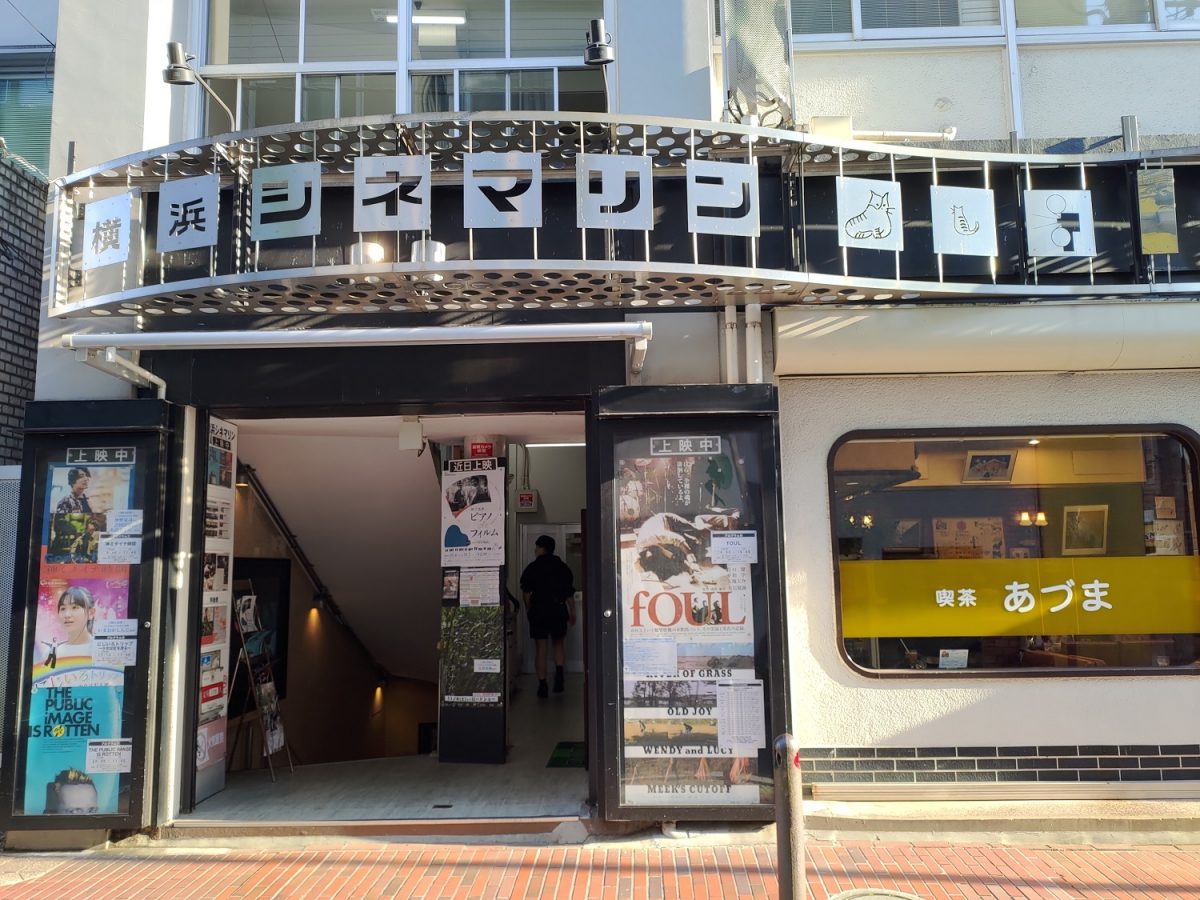
"When you watch this movie, you become Mirai Moriyama. Regardless of age or gender, everyone will feel like they're in his shoes and their hearts will be filled with emotion."
That's what Atsuko Yahata, manager of Yokohama Cinemarin, had to say about a movie poster I'd been curious about. It wasn't just that it was interesting or that I empathized with the protagonist's feelings, but that it was a movie that "made me become Mirai Moriyama." My interest in the film was piqued, and at the same time, I could really feel Yahata's love and passion for film.
Looking around Isezakicho after coming down for the first time in a while, I noticed that some of the familiar shops had been replaced by new establishments. However, there was still a corner that felt like a snapshot of the Showa era, with the same atmosphere. Attracted by movie posters and retro signs, I went down the stairs to the basement and found myself at the bottom of Yokohama Cinemarine.
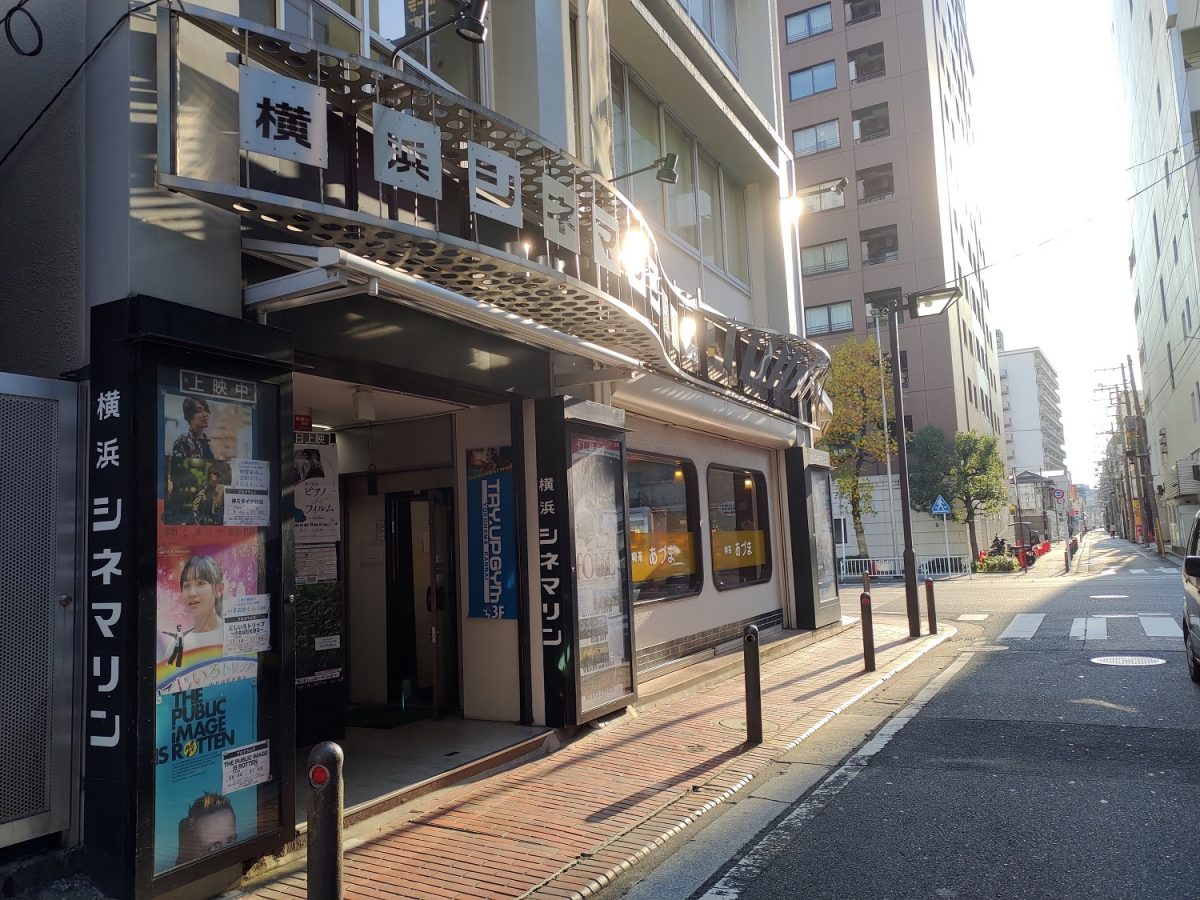
The renovated interior is bright and clean, with a predominantly white color scheme. The reception desk is directly in front as you enter, and is surrounded by movie posters and colorful merchandise. If you walk a little further and turn around, you'll see a movie trailer playing on a projector on a section of the wall that extends from the ceiling. It's an exciting device that makes you feel like you've found a hidden track.
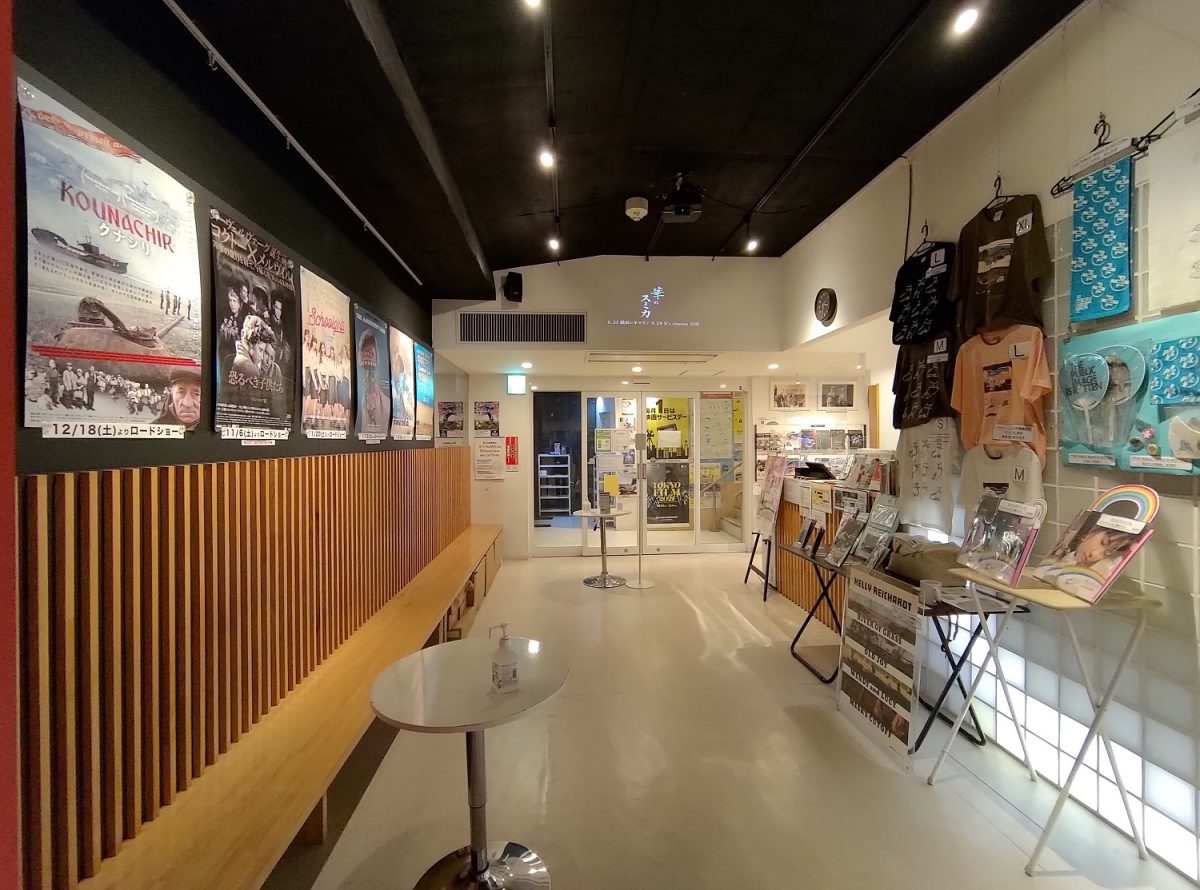
This cinema has one screen with 102 seats and uses a projection system that combines digital and film projection. Another major attraction is the high-quality sound.
Cinemarine's history dates back over 60 years, to 1954. During the heyday of film and theater, when nearly 40 movie theaters lined the stretch from Isezaki Mall to Bashamichi, Yoshimoto Kogyo started the theater as the Kagetsu Movie Theater. The Kagetsu Movie Theater closed in 1963, but the following year it was renamed Isezaki Cinema Theater and reopened under a new manager. In 1986, the manager's son took over, and while the parent company remained the same, the theater changed its name to its current name, Yokohama Cinemarine, in 1989. For a time, it mainly screened Nikkatsu Roman Porno films and all-night screenings, but around this time it began to screen mostly Shochiku films.
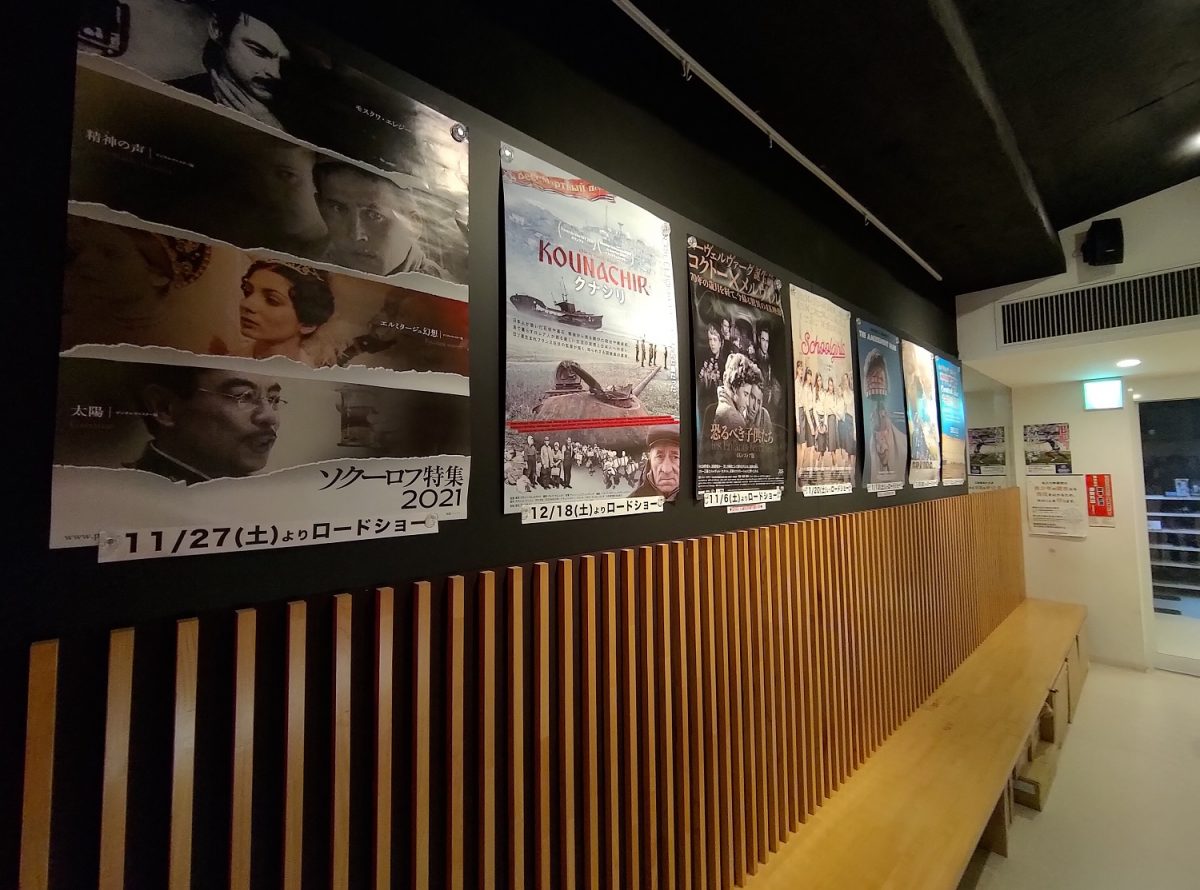
Having survived many changes and remained a fixture in the film industry, Yokohama Cinemarin faced its next challenge in 2014: the wave of digitalization. Although it had planned to continue screening films with a projector, film productions stopped altogether, and the cinema was in danger of closing.
At that time, the current manager, Mr. Yawata, received a phone call.
"Yahata-san, didn't you say you wanted to open a movie theater? Actually, a certain movie theater is about to close. Would you like to take it over?"
When the person in charge of maintaining Cinemarin's projectors was thinking about how to keep the place open, he remembered Yawata, who was active in a film club. Yawata had no experience in running a company, but when he was told that he had to give an answer immediately because he had been keeping the building owner and the previous manager waiting, he was inspired and made the bold decision to "just do it!"
Running a film club would take time to move large amounts of money, so Yawata decided to go it alone. It was a challenge that would likely drain all of his assets, but with the support of all his brothers, who said, "It's a contribution to culture, so why not?", he became the president of the new Yokohama Cinemarine in 2014. This development is so dramatic that it could be made into a movie in itself.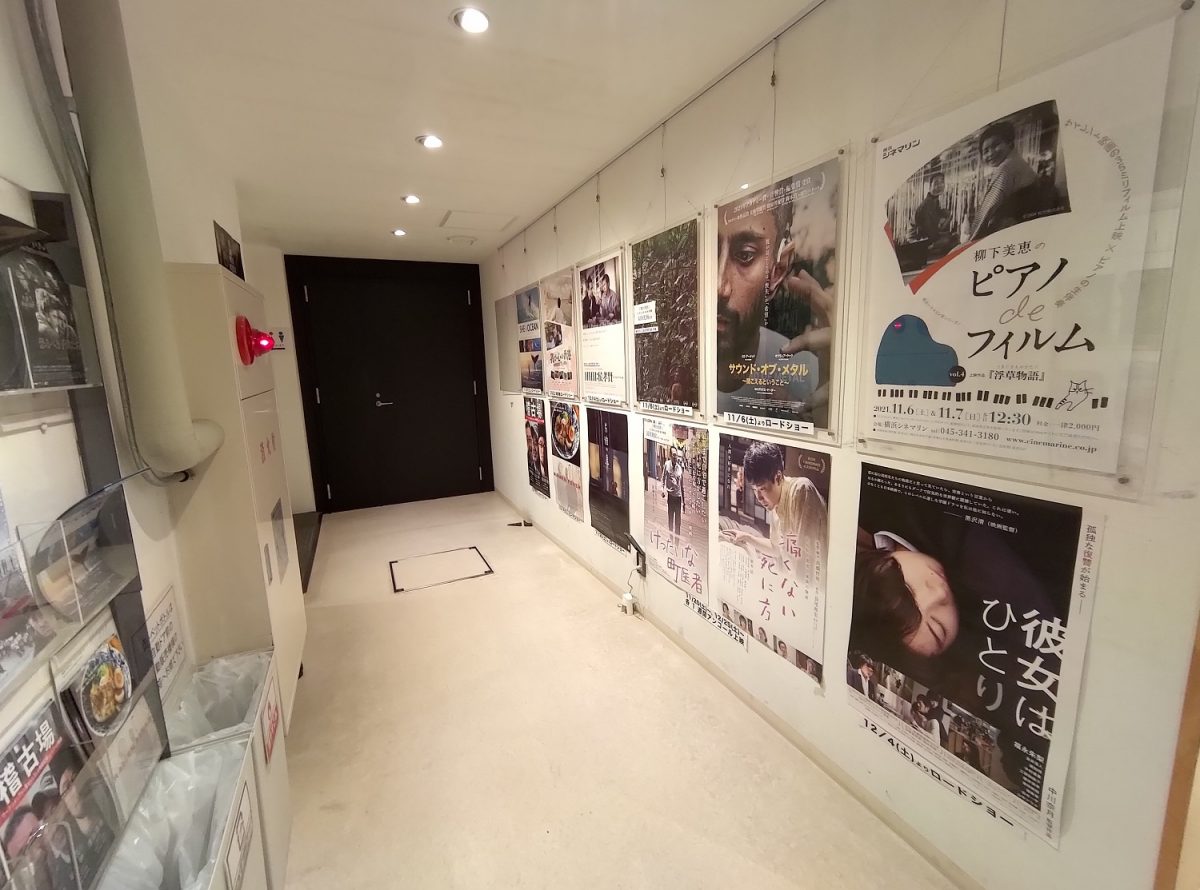
When she first became the director, she left negotiations with distribution companies regarding major productions to experienced staff, but with the desire to "have face-to-face relationships with people at film distribution companies," she began to personally negotiate and acquire films. At first, she had next to no experience or relationships, so she was unable to acquire films as she wanted, and there were often gaps in the screening schedule, but she thought, "I have special screenings!" and arranged many special screenings herself to fill the gaps.
"There were an unusually large number of special features during that year. We tried doing a special feature on Suzuki Seijun, a special feature on Osugi Ren, and so on," Yawata recalled with a laugh. This strategy paid off, and they began to receive comments that "Cinemarine seems to be good at special feature screenings," and the number of films they could screen gradually increased.
As you can see, special screenings and events are Cinemarine's forte. When I asked about the war special they hold every summer, I got the following answer.
"Even before I took over the cinema, my film club had been showing peace films in the summer. I thought it was one of the cinema's roles to provide people with an opportunity to take a fresh look at the wars of the past. I do this every year with the hope that people will learn about history from films, and I intend to continue doing so in the future."
Cinemarin is not just a place to enjoy movies, but also a place where you can learn and make new discoveries through movies. It also provides an opportunity to experience the local area of Isezakicho.
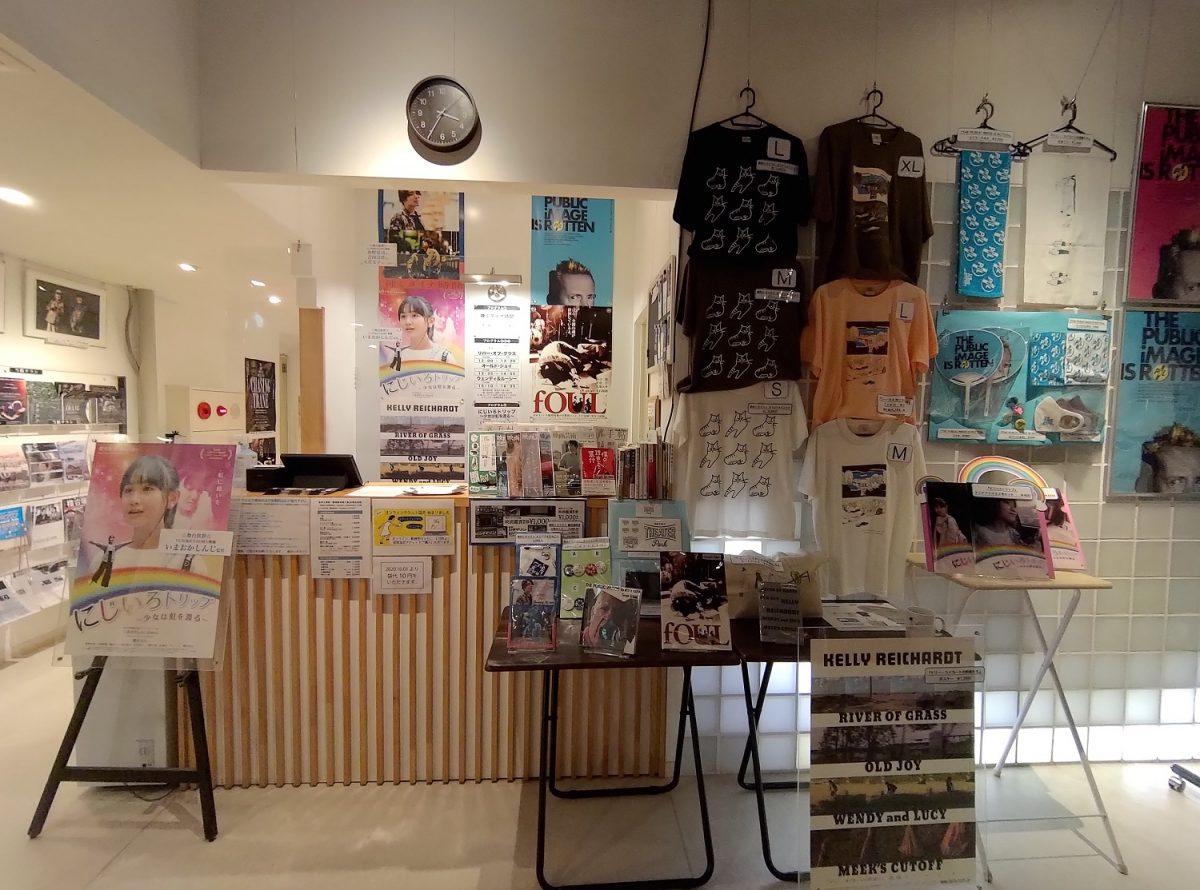
Yawata says he wants to hold more community-based events, and has already collaborated with many local businesses. For example, when there was a special feature on Taiwanese films, he held a discount campaign on ticket stubs at a nearby Taiwanese restaurant, and for the upcoming special feature on jazz films, he is planning to collaborate with a jazz bar. He explains that these events and collaborations are possible precisely because Isezakicho is a good "town for the common people."
"Isezakicho is a town for the common people. The original long-established clothing stores are disappearing one after another... It was originally a town for kimonos, after all. That's a bit sad, though. But for people who come here, I think the fact that it's not Yokohama Station, not Minato Mirai, and not Motomachi, but Isezakicho, makes it easy to come here. People from other places are surprised to see a shopping street like this in such a place, and see so many people walking around, and they wonder where all these people came from. That makes me very happy."
As we were leaving, we looked over the posters of the films that were scheduled to be screened, and I asked him what he keeps in mind when choosing films. He told me, "I don't intentionally choose films that reflect the social climate of the time, but in the end, many of the films I choose do reflect the social climate of the time."
This is a word that once again made me realize that the movie experience at Yokohama Cinemarin is entertainment, learning, discovery, and encounter. I hope you will come and experience the dreamlike moment that only Cinemarin can offer, disconnected from reality in this underground space down the stairs.
Cinema Walk No. 1 "Cinema Jack & Betty" is here
Cinema Walk No. 2 "Cinema Novecento" is here
